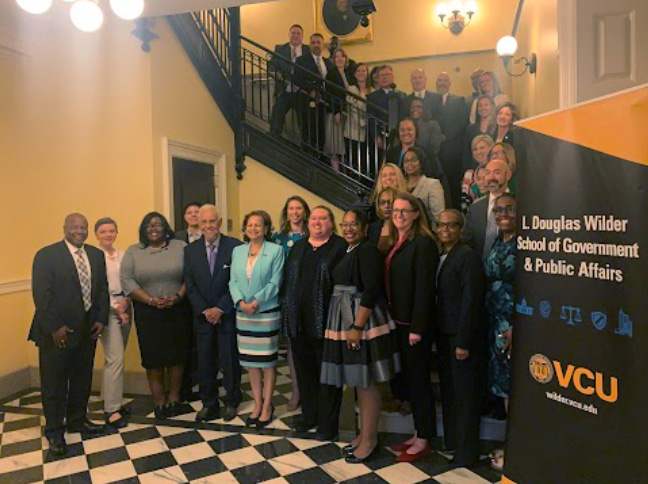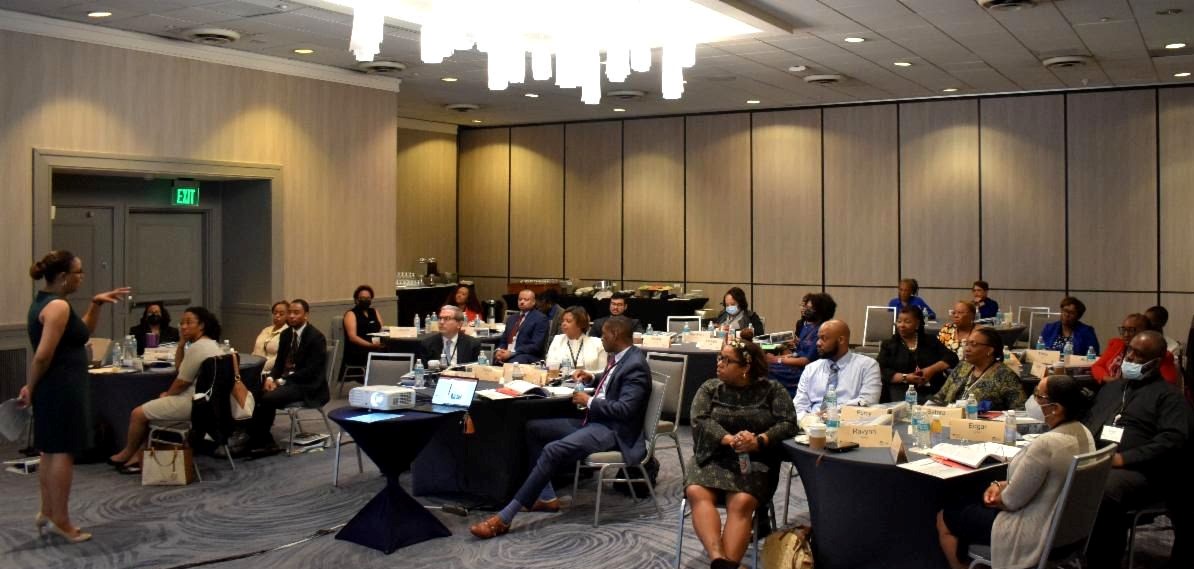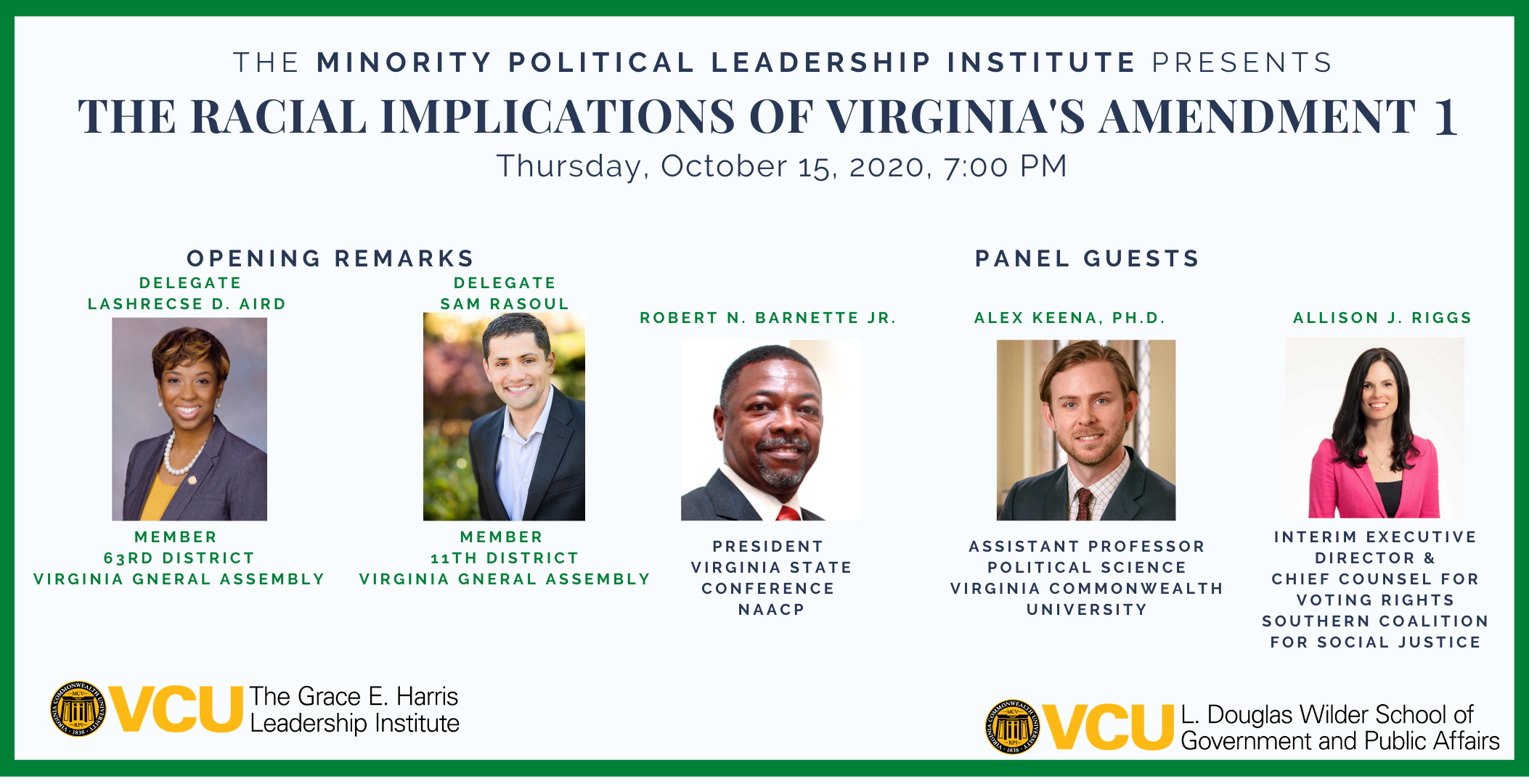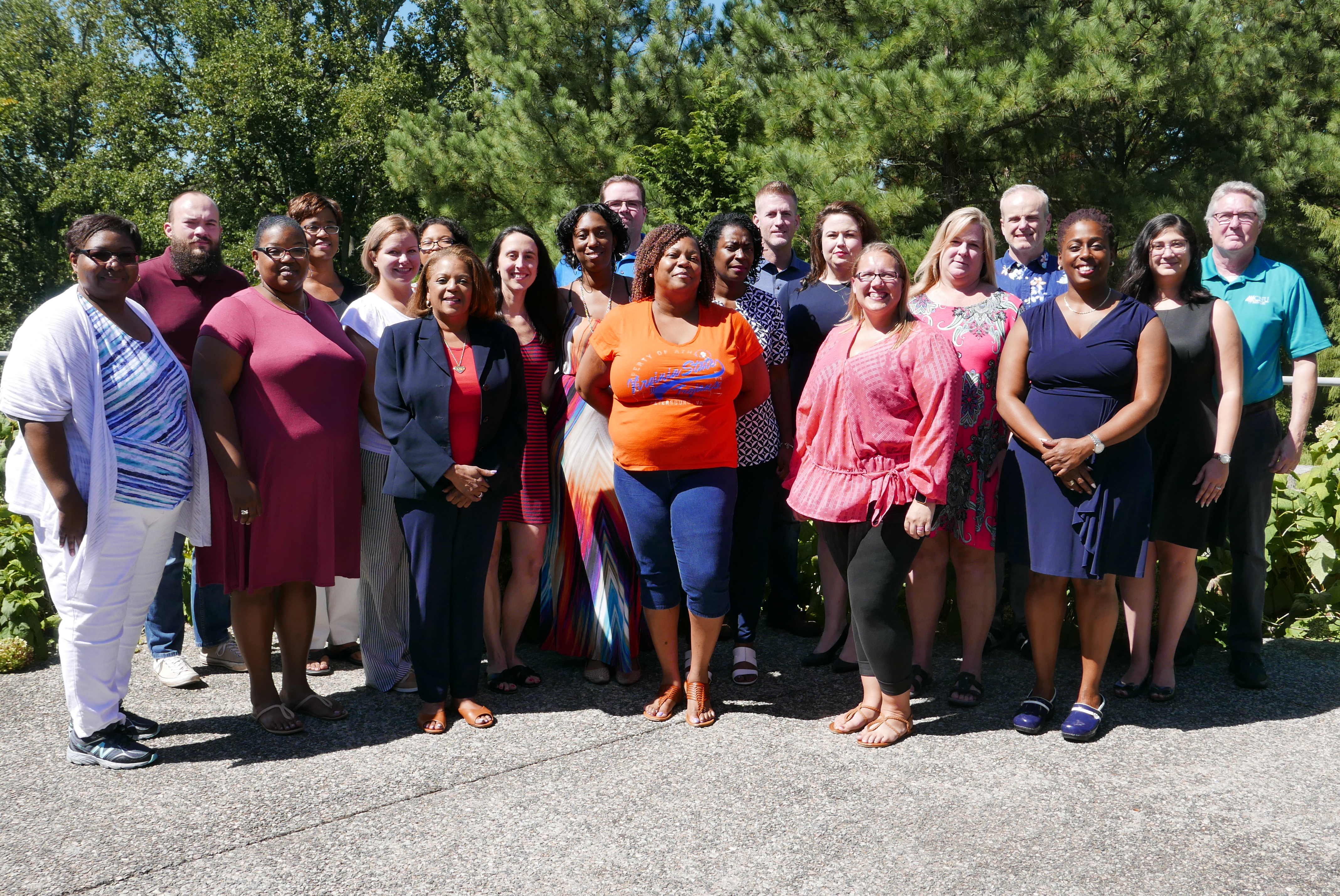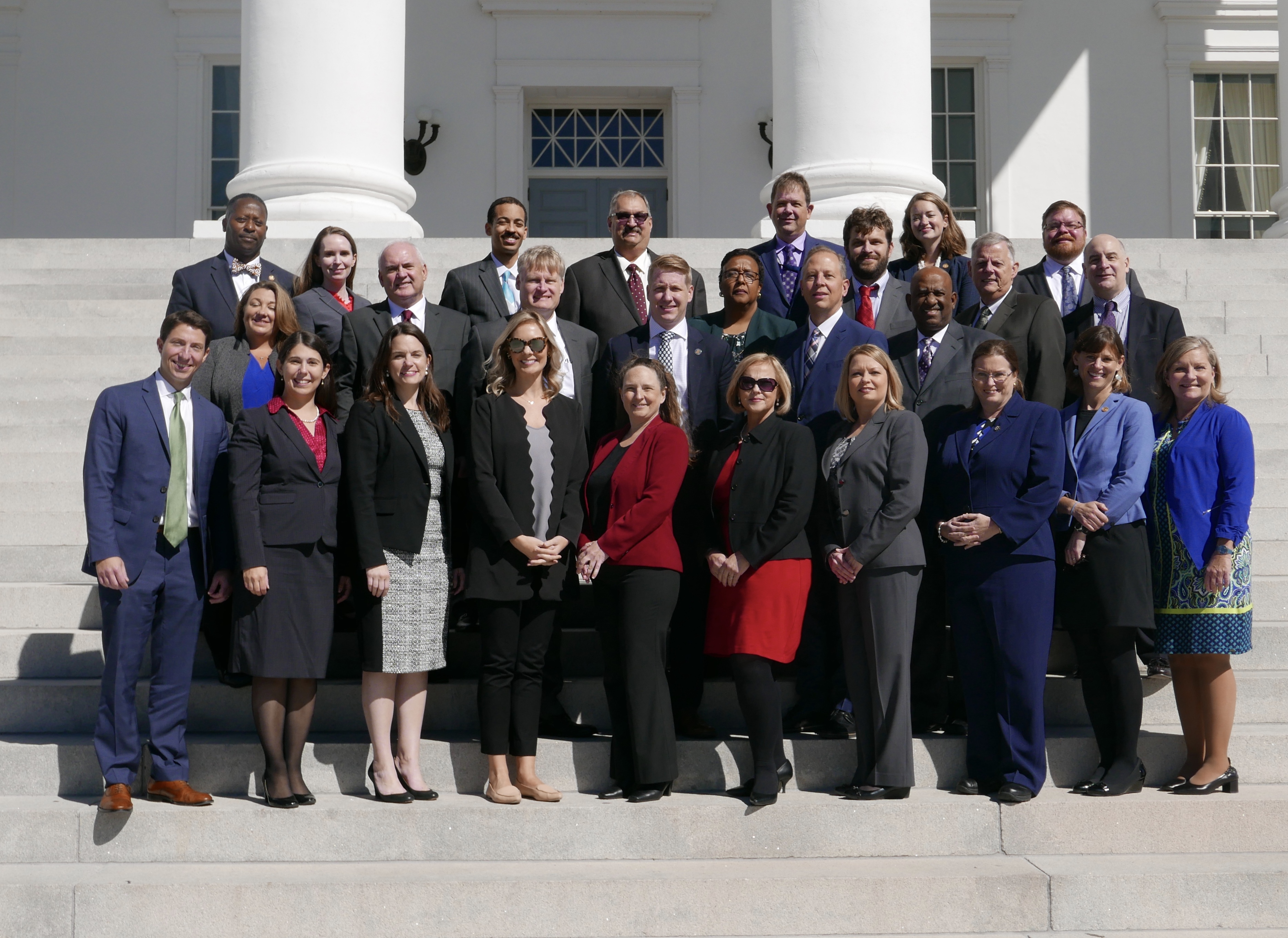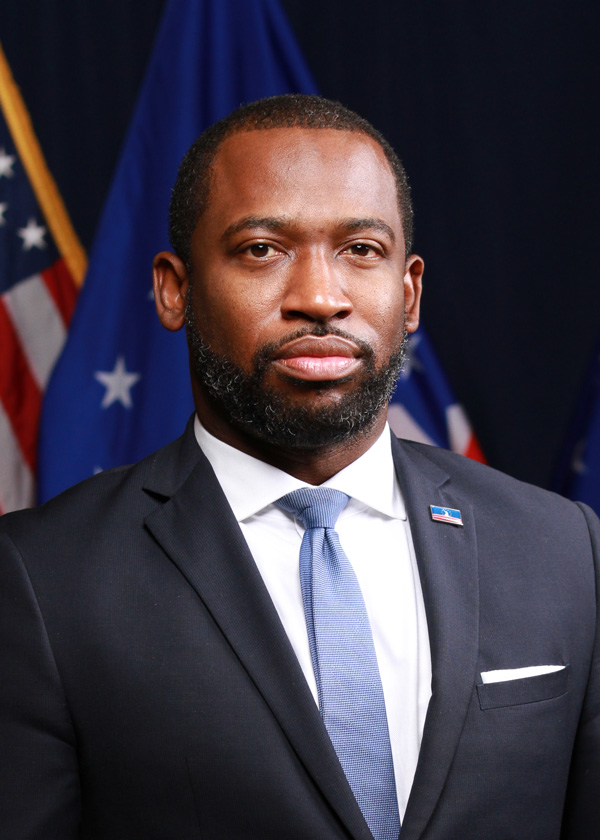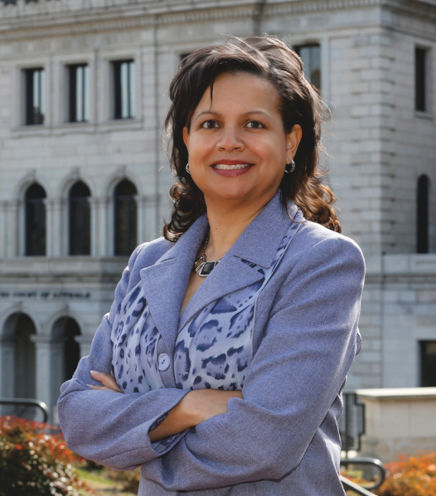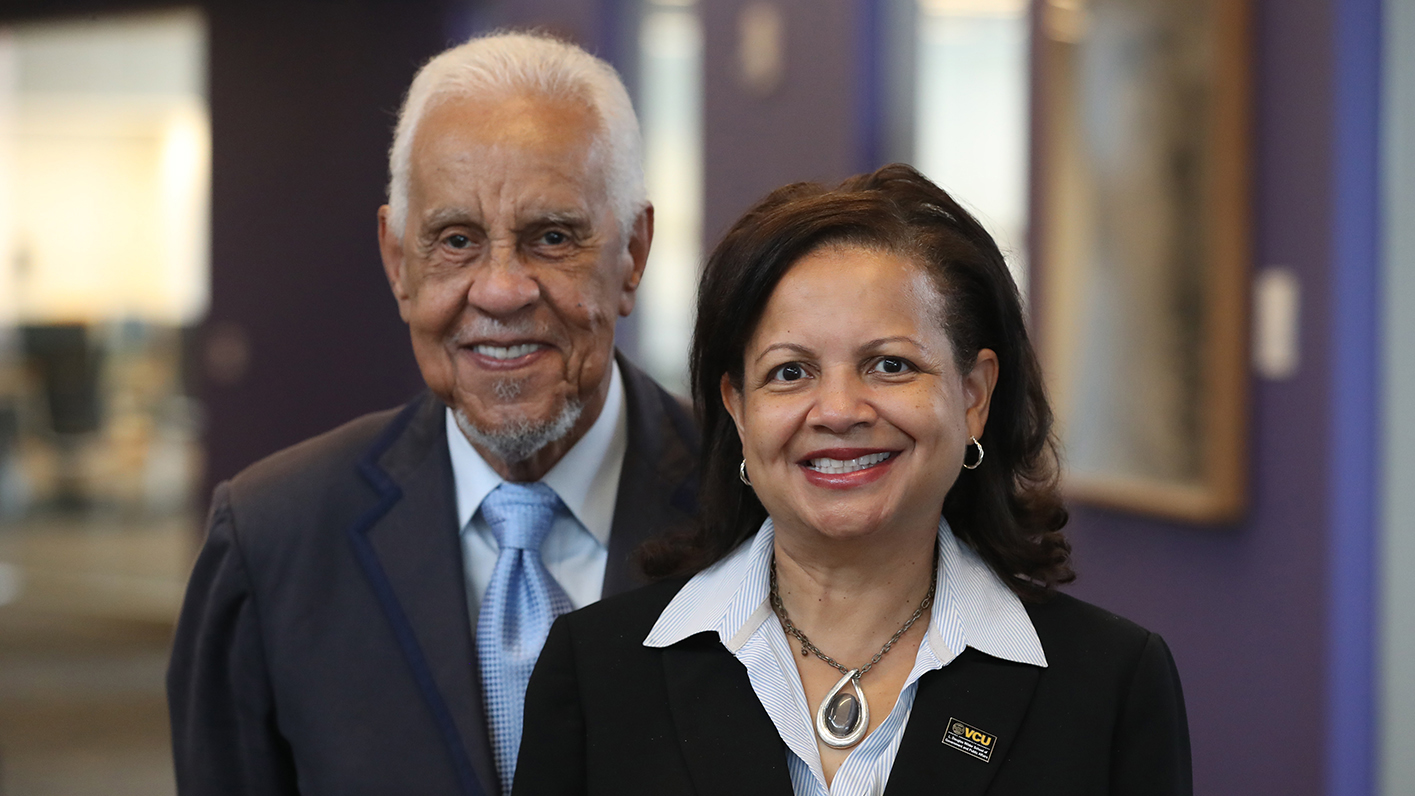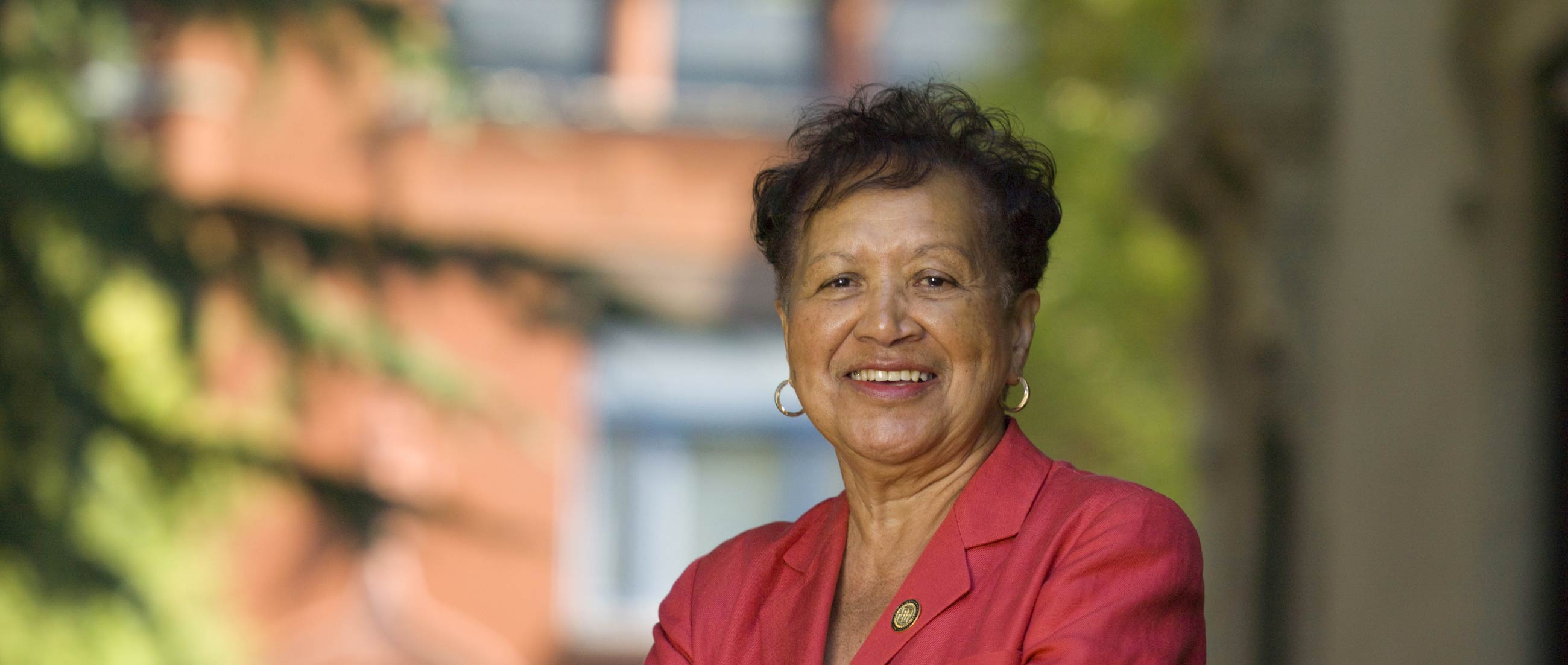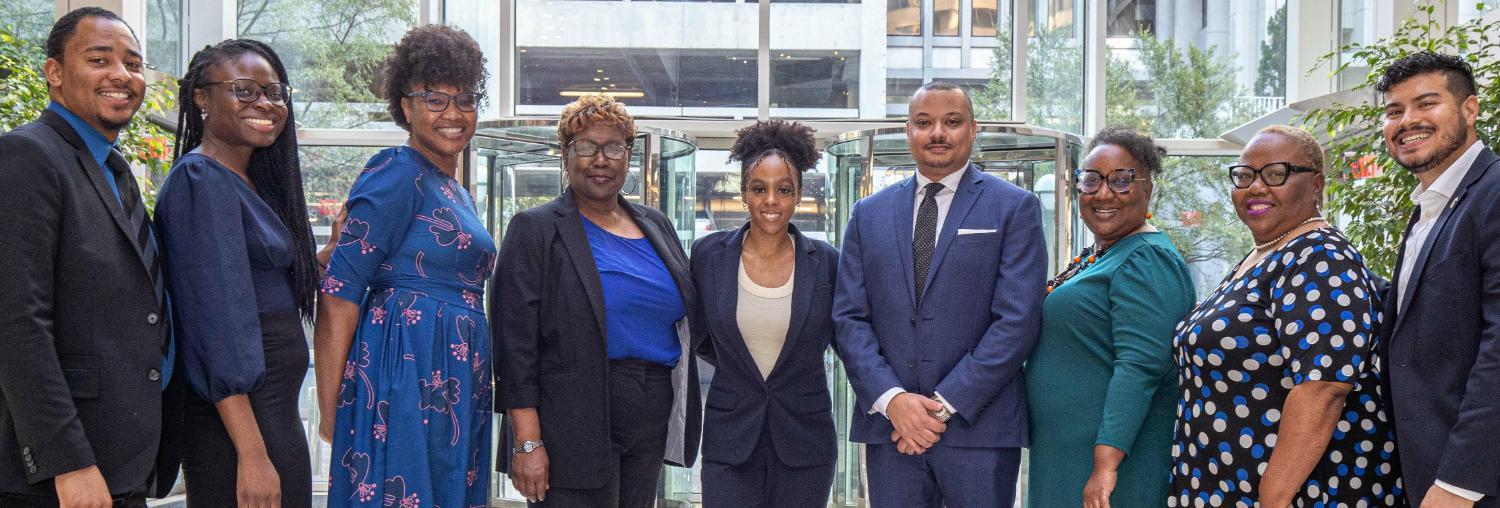
The Minority Political Leadership Institute offers insights and concepts regarding personal leadership, policy and legislative processes to cultivate a deeper understanding of legacy, responsible stewardship, public service, and integrity for future leaders.
The MPLI is an experience designed to promote leadership development for individuals interested in issues important to minority communities, including community economics, political climate, civic engagement, and equity. MPLI offers insights regarding leadership legacy and culture, personal leadership, policy and legislative processes, responsible stewardship, public service, and integrity for future leaders. Each program year, participants engage and interact with communities across Virginia and learn about unique strengths and issues facing different regions of the Commonwealth.
Program Objectives
The Minority Political Leadership Institute is designed to:
- Identify cutting-edge solutions to challenges affecting minority communities across the Commonwealth
- Expand knowledge regarding the nature of public policy, legislative structures, and political entities in Virginia
- Assess and enhance current leadership skills in relationship to community needs, coalition building, conflict resolution, transformational leadership, cross-cultural competencies, and creating a vision for progress
- Use skills in consensus building, conflict management, critical thinking, and ethics to become a more effective leader in political systems
- Understand the significance and impact of traditional and new media in political life
- Gain valuable insights into personal leadership style
- Experience politics in action to garner networks, contacts, and resources for effective information-sharing, collaboration, and decision-making
- MPLI participants work in project teams to complete an equity impact analysis of legislation from the General Assembly to examine how specific legislation promotes or reduces disparities in minority communities within the Commonwealth of Virginia
This program provides an excellent opportunity for professional development and networking while providing CEU's and SHRM PDC's.
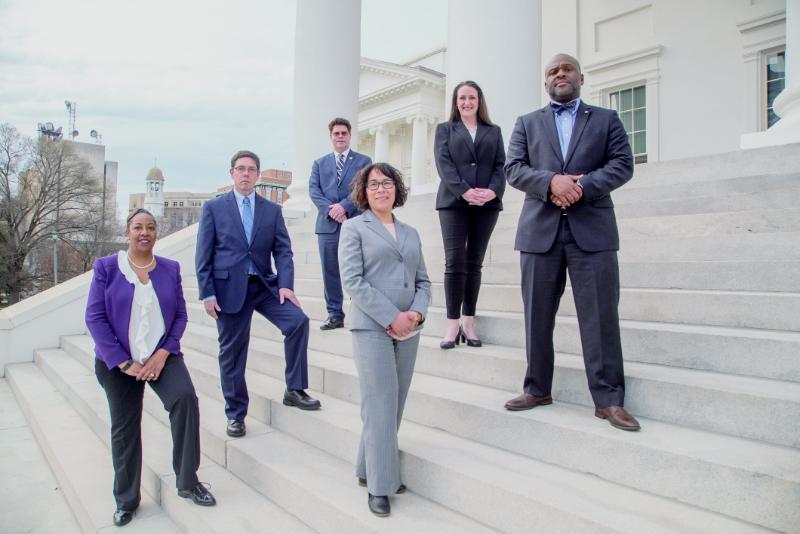 Program Highlights
Program Highlights
Through a series of intensive sessions, participants expand their understanding of the nature of leadership, public policy, and community change and gain inspiration and practical guidance from seasoned leaders and professionals.
Featuring members of the Virginia Legislative Black Caucus and noted leaders and experts from community, state, and national arenas, the Minority Political Leadership Institute explores the spectrum of leadership challenges and opportunities facing Virginia’s future.
MPLI Participants Will:
- Meet and directly interact with state legislators, senior elected officials, appointed officials in the Governor’s office, local officials, and leaders across the Commonwealth and country
- Experience politics in action and garner effective networks
- Engage communities across Virginia in intensive and interactive program sessions
- Develop a broad awareness of the roles and challenges — as well as the potential opportunities — for minorities and others to provide leadership for Virginia’s future
- Expand your understanding of the nature of leadership, public policy processes, and community change
- Actively participate in public service projects addressing a current need within a minority community
- Gain applied knowledge from seasoned leaders and professionals
Who Should Participate?
The Minority Political Leadership Institute is a program suited for current and emerging leaders interested in issues affecting minority and underserved communities.
Prior political experience or an interest in running for office is not required for consideration. The MPLI works with participants who have community or political leadership aspirations to provide them with the tools they need to serve.
All applications require the following documents:
- Current resume
- One nomination/recommendation from supervisor(s)/colleague(s)
- Completed online application
Schedule and Cost
Tuition for the Minority Political Leadership Institute is $2,150.
Tuition includes program speaker fees and experiences, program materials, leadership assessments, the Annual Legislative Conference in DC, and lodging and meals on in-person program days. Participants will be invoiced upon acceptance to the MPLI.
2025/2026 Schedule
- September 12, 2025 (virtual)
- September 23 – 26, 2025 (DC)
- October 23 – 24, 2025 (Richmond)
- November 13 – 14, 2025 (Norfolk)
- January 8 – 9, 2026 (Richmond)
- February 19 – 20, 2026 (Richmond)
- March 19 - 20, 2026 (Farmville)
- April 17, 2026 (Richmond)
Applications Closed
MPLI Team Projects
Each year, Minority Political Leadership Institute program participants work on project teams to advance the understanding of issues facing underserved communities in Virginia. The team project experience facilitates experiential learning of politics in action to garner networks, contacts, and resources for effective information sharing, collaboration, and decision-making. The diverse nature of the teams provides excellent opportunities for learning new perspectives and networking across Virginia, which assists participants in identifying cutting-edge solutions that fit the community’s needs. Project teams also provide a venue for applying new skills and developing creative strategies for solving problems, as well as a laboratory for working on diverse teams.
Since 2012, MPLI program participants have worked on projects designed to examine the racial impact of proposed or passed legislation from the General Assembly. The purpose of this analysis is to examine how specific legislation promotes or reduces racial/ethnic disparities on minority communities within the Commonwealth of Virginia. Projects seek to answer the ways in which the policy may enhance racial disparities, reduce racial disparities, and/or have racial/ethnic impact.
Conducting legislative racial impact analysis is an important tool in examining the effects of public policy on minority communities in the Commonwealth of Virginia.
Expanding the Community School Framework: Regional Pilot Program
Members:
Tonya Byrd, Dominion Energy
Lakeisha Cook, Virginia Interfaith Center for Public Policy
JoNathan Collins, Virginia Senate Democratic Caucus
Tsion Tesfaye, The Commonwealth Institute
Mike Royster, Institute for Public Health Innovation
Voting Rights Restoration
Members:
Alisha Bazemore, State Council of Higher Education for Virginia
Chicnee Brown, Defense Logistics Agency Aviation
Melvin Roy, Foster-U
Angela Waller, Zeta Phi Beta Sorority, Inc. Omicron Xi Zeta Chapter
Tap to Talk: Leveraging teletherapy for mental health in higher education
Members:
Stephanie Davis, Virginia Department of Social Services
Santiago Lima, Virginia Commonwealth University
Jaylin Drewry, Fair Elections Center
Frenchi Jones, Department of Defense
Louis Gordon, Virginia Department of Health
Increased Minority Housing in Virginia
Members:
Travis Hicks, The Association of Political Science - Virginia State University
Celes Davis, Virginia Department of Health / Office of Vital Records
Brandan Simmons, The Robert Bobb Group LLC
Dalila Medrano, Chesterfield County Government
Lathaniel Kirts, Communities In Schools of Virginia
Establishing Environmental Justice and Equity Boards In Localities & Comprehensive Planning
Members:
Jerome Brooks, Virginia Department of Environmental Quality
Malcolm Jones, UVA Repair Lab
Monique Gatling-Way, New Virginia Majority
Tammie Mobley, R.E.A.L Girlz
Sheena Palmer, S Cubed Productions, LLC
HB 142 Public Transit; Transit Ridership Incentive Program
Members
Jumoke Akinrimsi, Equity & Community Impact Specialist, Virginia Department of Emergency Management
Lamar Bates, Manager of Safety, Training and Labor Relations, Keolis Rail Services Virginia
Arrington Evans, Intern, Lawyers' Committee for Civil Rights Under Law
Kelly Evans, Housing Outreach Specialist, Anthem Healthkeepers
Lawrence Green, ISAEP Post-secondary Liaison, Richmond Public School
Trina Louis, Policy Advisor, Richmond City Social Services
Melissa Mason, Program Analyst, Virginia Department of Housing and Community Development
Freddy Mejia, Policy Analyst, The Commonwealth Institute for Fiscal Analyst
LaChelle Waller, Director, Virginia Commonwealth University
Changes from a maximum of 25 percent to a minimum of 25 percent the percentage of Transit Ridership Incentive Program (TRIP) funds required to be used to support the establishment of programs to reduce the impact of fares on low-income individuals. This change expires on July 1, 2024. The bill also requires at least 25 percent of TRIP funds to be used to support regional transit initiatives and provides that the Commonwealth Transportation Board has the discretion to allocate the remaining funds available as authorized by law and based on the programs and initiatives submitted during the application process.
HB1276 Comprehensive Plan; Healthy Communities Strategy
Members
Mel Borja, Policy Analyst, The Commonwealth Institute for Fiscal Analysis
Krystle Dorsey, Secretary, Urban League of Greater Richmond Young Professionals
Tiffany Garner, Community Violence Initiatives Manager, Giffords Law Center
Edgar Greer, Lieutenant, Division of Patrol Operations, Virginia Commonwealth University Police Department
Denise Harrington, Music Educator, Henrico County Public Schools
Paula Robinson, Associate Director of Equity & Engagement, State Council of Higher Education of Virginia
Jalesha Smith, Diversity, Equity, and Inclusion Analyst, City of Norfolk
Dominique Thaxton, Ninth District Council Liaison, City of Richmond Council
Jeffery Wilson, Associate Professor, School of Education, Virginia Commonwealth University
Authorizes cities with populations greater than 20,000 and counties with populations greater than 100,000 to consider, at the next and all subsequent reviews of the comprehensive plan, adopting a healthy community’s strategy. The bill provides that the locality's strategy shall be to identify neighborhoods with major sources of pollution or hazardous waste, to identify objectives and policies to reduce health risks in such neighborhoods, to promote civic engagement by residents of such neighborhoods, and to prioritize improvements and programs that address the needs of such neighborhoods.
HB 804 Virginia Residential Landlord and Tenant Act; nonrefundable application fee, limitations
Members
Sharika Bivens, Intensive Case Management Caseworker, International Rescue Committee
Robin Buskey, Policy Analyst, Virginia Department of Health
Deardrian Carver, Chief Customer Relations Officer, Virginia Retirement System
Phyllis Haynes, Co-Director and program specialist, School of Education, Virginia Commonwealth University
David Sams, Executive Director, The Community Tax Law Project
Ravynn Sykes, Front Desk Coordinator, Career Services, Virginia Commonwealth University
Satara Woodson, Family Engagement Supervisor, City of Richmond Department of Social Services
Percy Wyatt, Program and Operations Supervisor, City of Richmond Department of Public Utilities
Places limitations on when a landlord may charge a nonrefundable application fee in addition to a refundable application deposit. The bill prohibits a landlord with more than four rental dwelling units or more than a 10 percent interest in more than four rental dwelling units from charging prospective tenants any nonrefundable application fee in excess of the amount necessary to reimburse the landlord for any actual out-of-pocket expenses paid by the landlord to a third party performing a number of pre-occupancies checks on the applicant. The bill allows an applicant to choose to provide certain information to the landlord in the form of a portable tenant screening report in lieu of paying an application fee. When an applicant chooses not to provide such report, a landlord that owns four or fewer rental dwelling units may charge such applicant actual out-of-pocket expenses paid by the landlord to a third party performing certain pre-occupancy checks on the applicant or, in the case of an application for a public housing unit, an application fee of no more than $32, including any actual out-of-pocket expenses paid to a third party by the landlord performing background, credit, or other pre-occupancy checks on the applicant.
HB 69 Grocery Investment Program and Fund
View project
Members
Taryn Anthony, internal policies and procedures specialist, Delta Sigma Theta Sorority Inc.
Tracey Dunn, field operations specialist, U.S. Department of Housing and Urban Development
Stephen Miller-Pitts, contracting specialist, Department of Defense
Grant Rissler, assistant director, Office of Public Policy Outreach, Virginia Commonwealth University
Barbara Williams-Lewis, administrative assistant, Altria LLC
In the 2018 session of the Virginia General Assembly, multiple pieces of legislation were brought to committee, proposing the creation of a fund to catalyze public-private partnerships to expand access to Virginians residing in food deserts. Through the creation of the fund, underserved communities would see the construction, rehabilitation and expansion of food retailers in their communities ameliorate food deserts.
SB 909/HB 1408 Virginia Fair Housing Law; unlawful discriminatory housing practices
View project
Members
Saman Aghaebrahim, special assistant, Office of the Governor of Virginia
Erica Brown-Meredith, assistant professor, Longwood University
Tarik Claiborne, regional portfolio manager, Virginia Housing Development Authority
Danielle Richardson, deputy clerk, Loudon County General District Court
Kera Woodard, equal employment opportunity program specialist, Virginia Department of Human Resource Management
This report provides a legislative racial impact analysis of Senate Bill (SB) 909, a proposed bill in the Virginia General Assembly, to expand the Virginia Fair Housing Law to include lawful sources of income. Specifically, this report examines state and county source of income laws and their variances by race and ethnicity.
SB 106 Congressional and state legislative districts; standards and criteria
View project
Members
Amber Adams, internal audit supervisor, Virginia Housing Development Authority
Kristen Dahlman, senior policy analyst, Virginia Department of Housing and Community Development
John Darnell Hicks, counselor, Southside Virginia Community College
Cassandra Reynolds, senior Pro Bono Coordinator, Hunton Andrew and Kurth LLP
Vanessa Walker Harris, director, Office of Family Health Services, Virginia Department of Health
This report examines Senate Bill (SB) 106, introduced during the 2018 Virginia General Assembly session to address the criterion of redistricting and the specific impact on racial and ethnic minorities. This legislation is a direct response to previous legislative attempts to address gerrymandering and remains an evolving issue in the Commonwealth.
HB 834/SB 449 Virginia Growth and Opportunity Act
View project
Members
Chika Anyadike, legislative aide, Virginia General Assembly
Saajida Chohan, assistant professor of English, John Tyler Community College
Ericka Hairston, Assistant hall director, Virginia Commonwealth University
Lynette Plummer, executive assistant to the attorney general and chief deputy attorney general, Office of the Attorney General
Anita Yearwood, conference and marketing coordinator, Virginia Municipal League
GO Virginia is an economic development initiative that seeks to preempt the harsh effects of federal budget cuts on Virginia’s economy, which is overly dependent on public-sector jobs. It promotes private sector job growth and workforce development through the use of state-based grants to invest in regionally significant capital projects that call for collaboration between localities, businesses, and education. It is important to be intentional in pursuing GO Virginia’s goals, otherwise this legislation may only allocate grants to institutions, organizations, and localities that already have sizeable resources. A critical question rests on how to ensure that low-income and minority communities can maximize the benefits of the legislation. The populations that are most affected by this legislation would depend on how the legislation is implemented. If minority communities are excluded from the process, then it is likely these communities would be insulated from the positive outcomes. It is imperative that minorities are adequately represented in the decision making process. This report explores why minority communities should be represented on the regional councils, which are the catalysts for the proposal process. By being proactive there is an opportunity to provide the same advantages to minority business development. We also explore how to strengthen the minority workforce to better compete for in-demand careers within the emerging industries that this legislation sets out to promote.
HB 828 Eligibility for TANF with drug-related felonies
View project
Members
Greg Hopkins, community programs manager, Department of Justice Services
Carla Jackson, assistant commissioner for legal affairs, Virginia Department of Motor Vehicles
Rana Wilson, senior systems engineer, CSRA Inc.
Ramunda Young, campus and community relations/entrepreneur, Northern Virginia Community College; MahoganyBooks; Ramunda Young Inc.
House Bill 828 (HB828) was proposed in 2016 to remove the ban on Temporary Assistance for Needy Families (TANF) for individuals with felony-related drug convictions who are otherwise eligible to receive benefits. The TANF program is designed to help low income families achieve self-sufficiency. States receive block grants to design and operate programs that accomplish one of the purposes of the TANF program: (1) provide assistance to needy families so children can be cared for in their own homes; (2) reduce the dependency of parents by promoting job preparation, work, and marriage; (3) prevent and reduce the incidence of out-of-wedlock pregnancies; (4) encourage the formation and maintenance of two-parent families (Personal Responsibility and Work Opportunity Reconciliation Act of 1996, Section 401). With nearly 700,000 people released from state and federal prison each year, access to TANF benefits is particularly critical for helping formerly incarcerated individuals transitioning back to their home communities. Significant disparities in convictions and incarceration coupled with variations in state population between Whites and Nonwhites translate into a disproportionate impact of the felony drug ban (The Sentencing Project, 2015). Virginia is one of 14 states with a full ban on TANF benefits for individuals with felony-related drug convictions. Adoption of HB828 proposes to eliminate this lifetime ban and provide an opportunity for low income families to meet their basic needs during the period in which they are in most need.
SJ 6 Establishment of charter schools in the commonwealth of Virginia
View project
Members
Shermese Epps, legal assistant, Vince and Vince LP
Edward Reed, chief of staff, Senate of Virginia, Sen. Rosalyn Dance
Brenda Sampe, family services supervisor, Chesterfield Colonial Heights Department of Social Services
Germika Pegram, clinical supervisor and agency clinician, Strategic Youth Services
Courtney Warren, policy analyst, Virginia Department of Juvenile Justice
Virginia is facing significant challenges related to public education such as decreased funding for public education, decreased teacher salaries, and overcrowded classrooms. Senate Joint Resolution 6 was a bill proposed in 2016 that sought to grant the Board of Education authority, subject to criteria and conditions prescribed by the General Assembly, to establish charter schools within the school divisions of the Commonwealth. There are racial implications related to the creation and authorization of charter schools and this report details those impacts and creates a set of recommendations to eliminate racial implementations when determining who authorizes charter schools in the Commonwealth of Virginia.

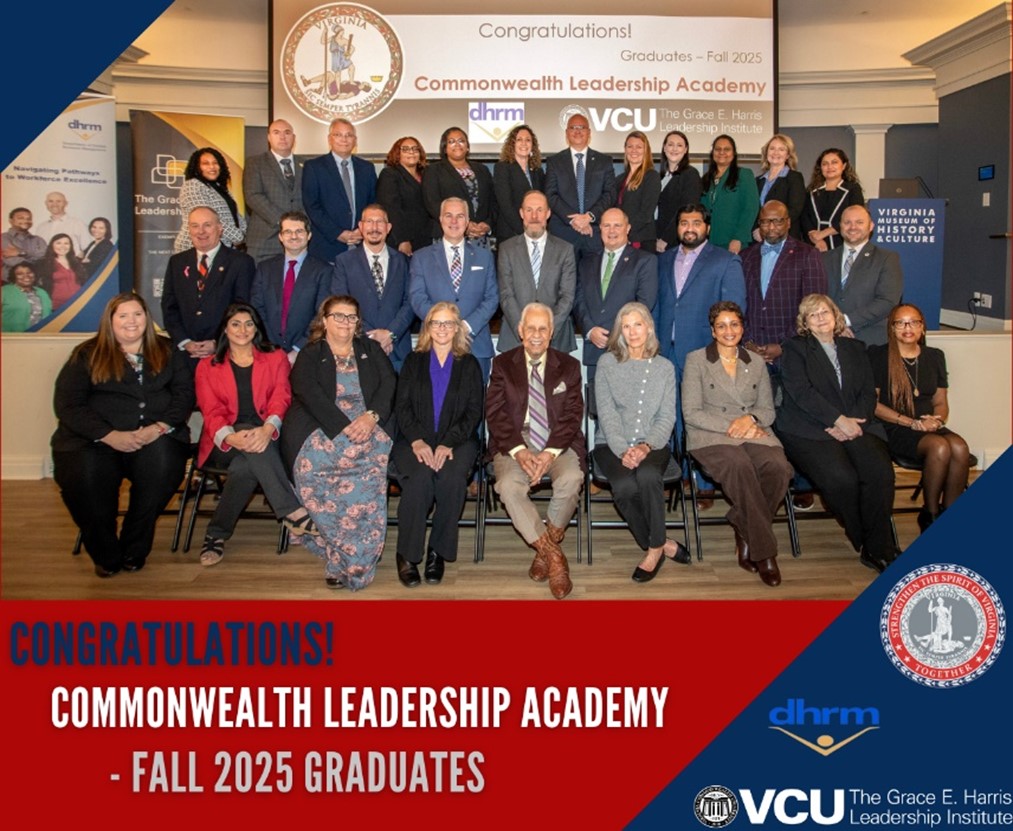
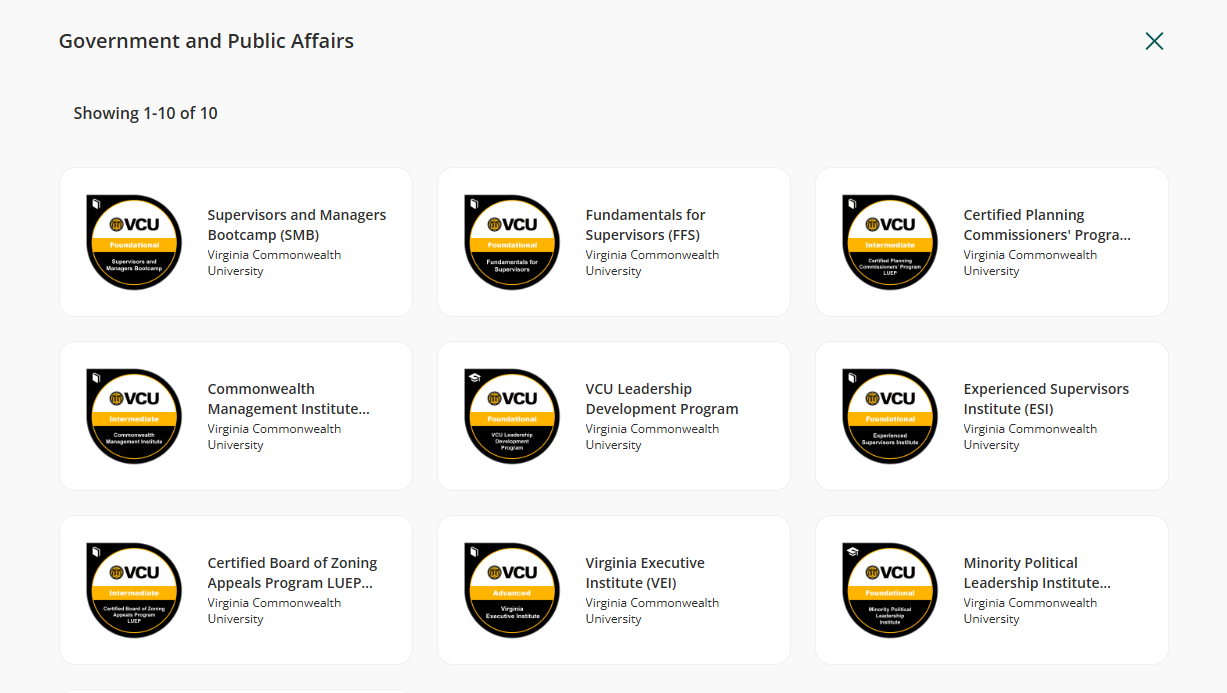

.jpg)

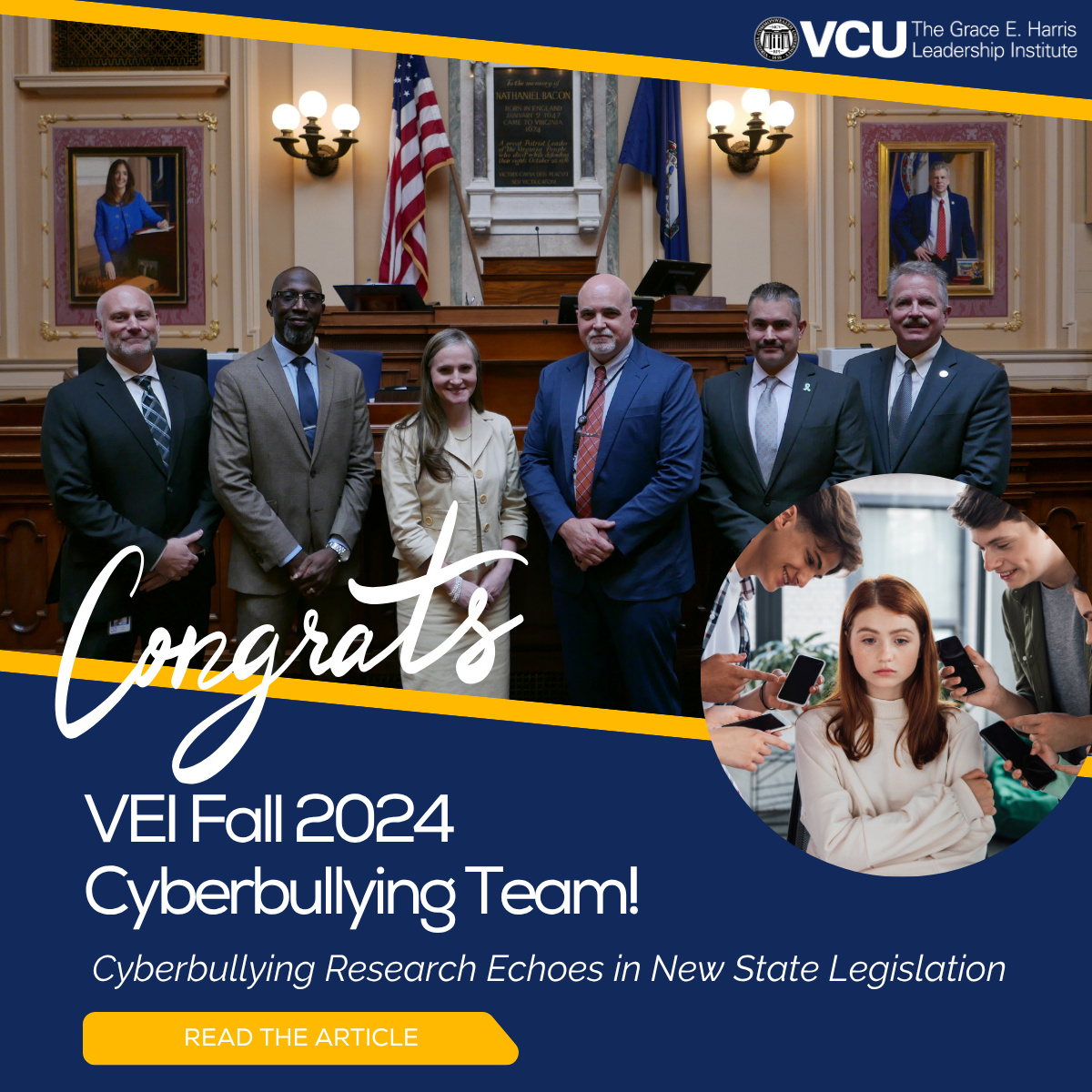
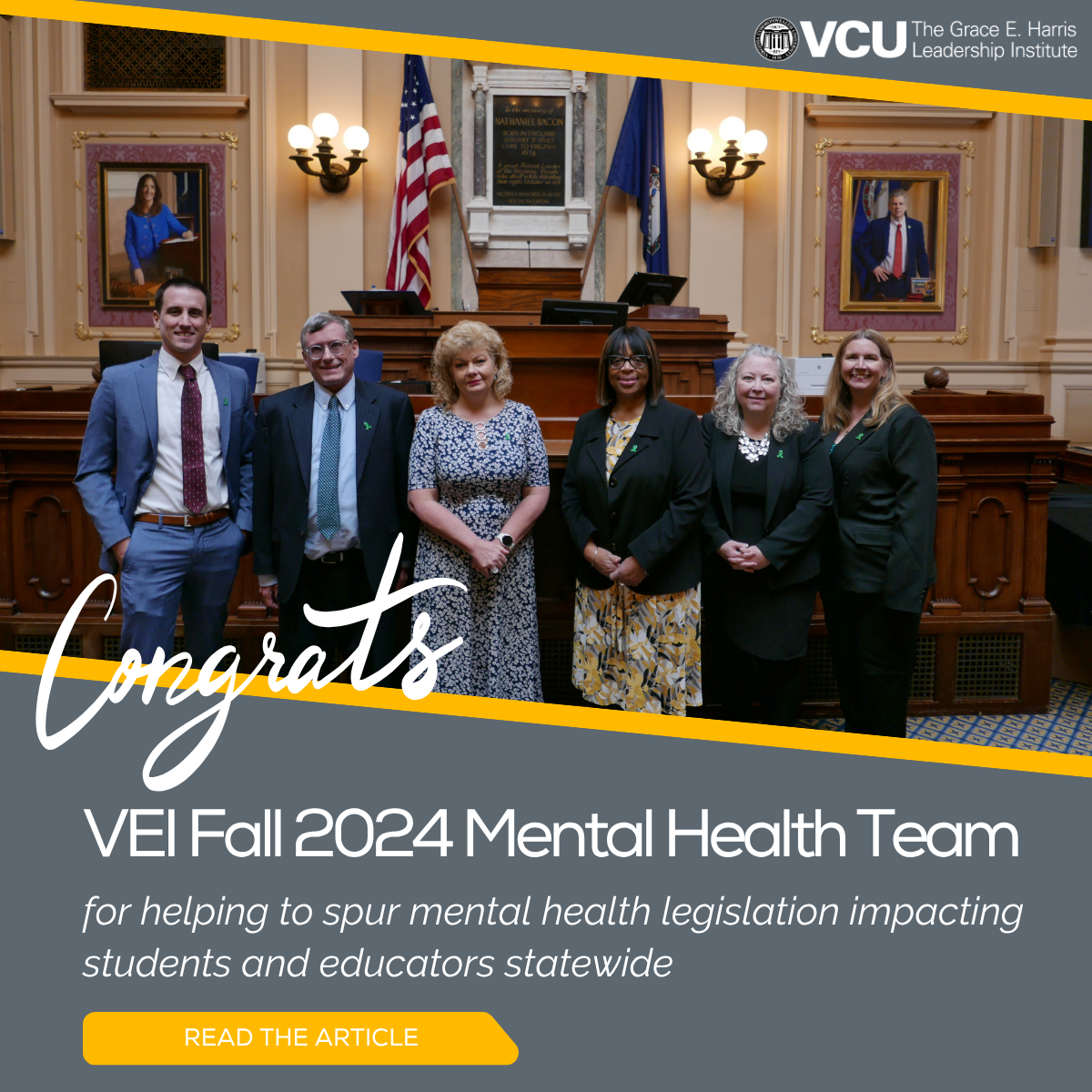



.jpg)


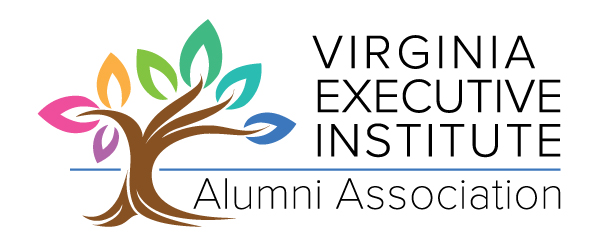
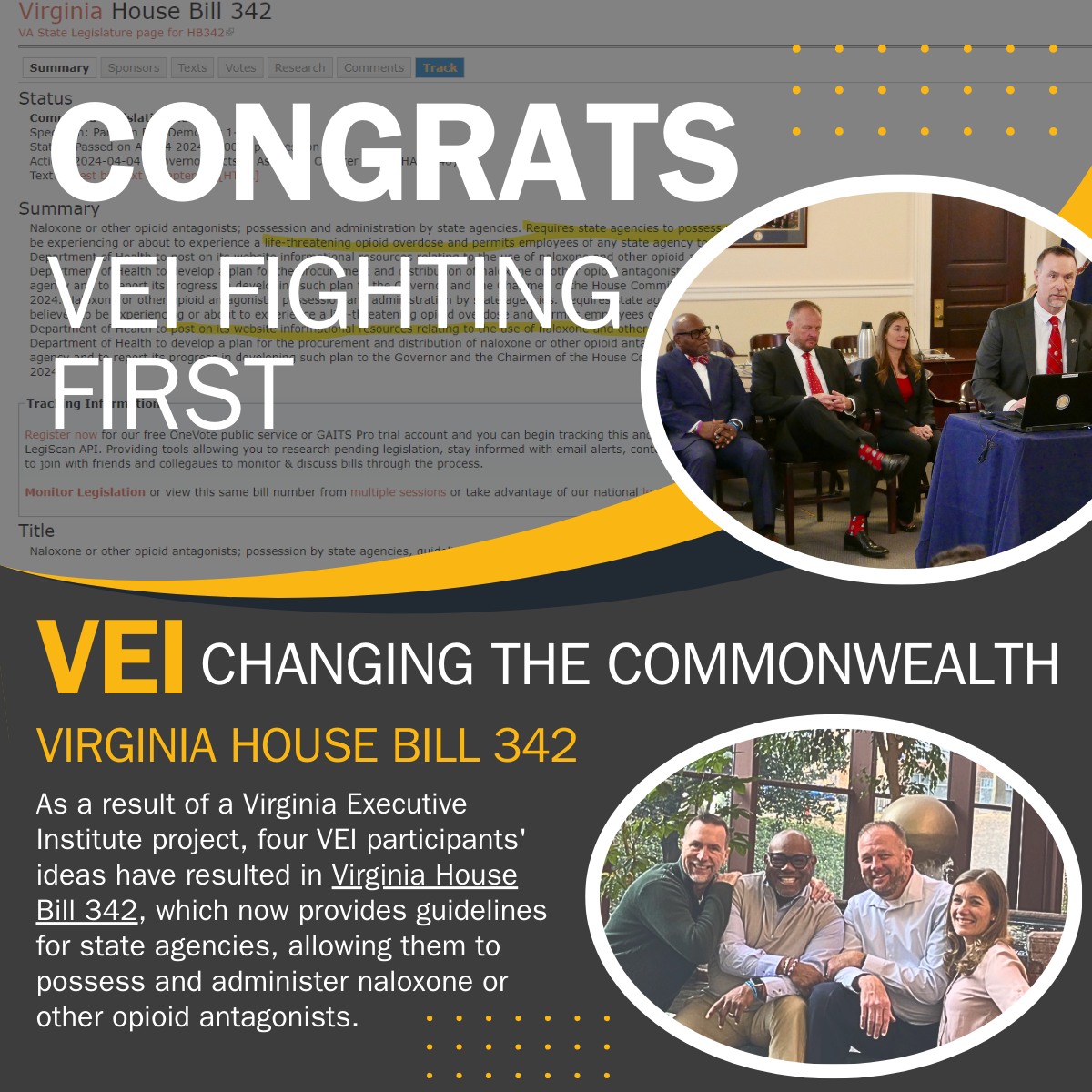
.jpg)


.png)
.jpeg)
